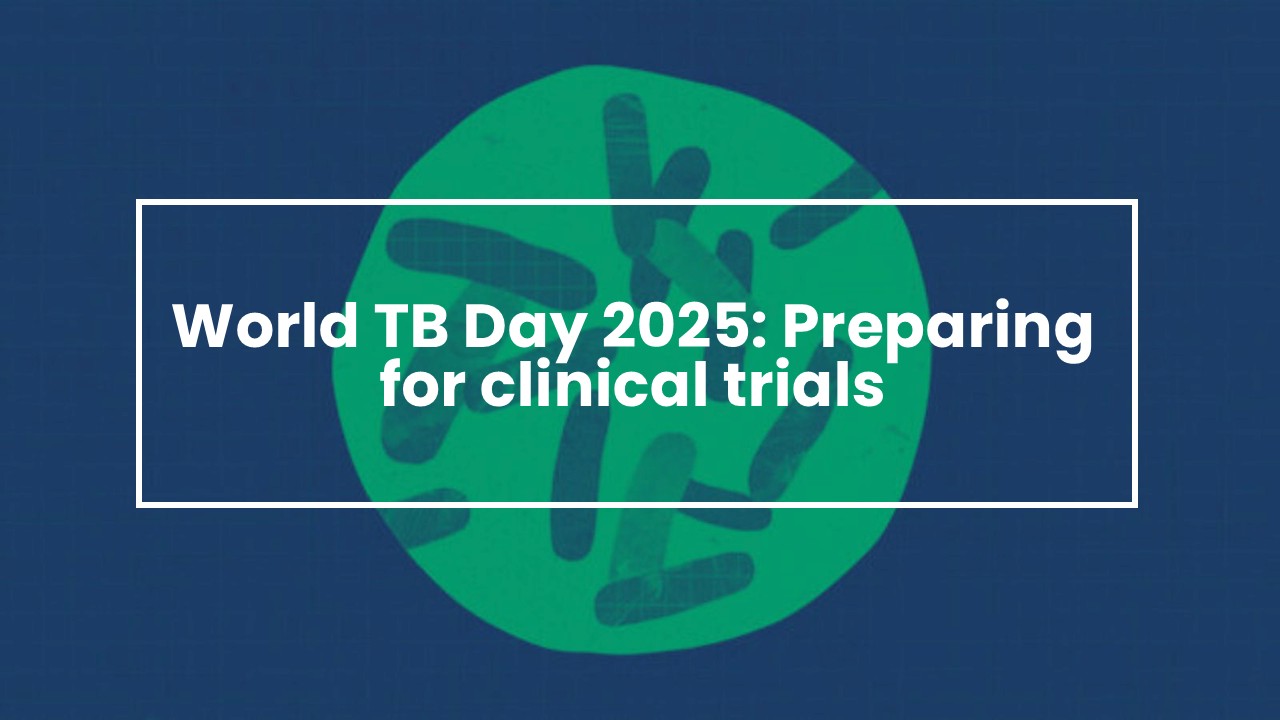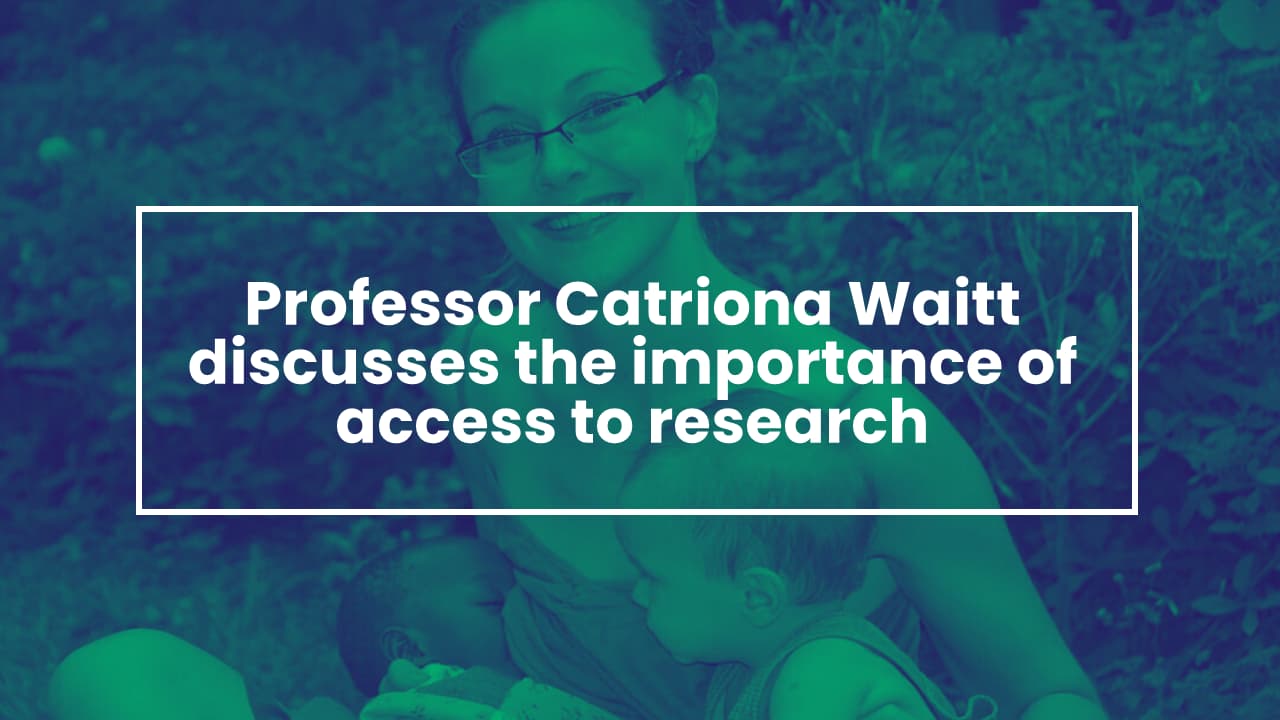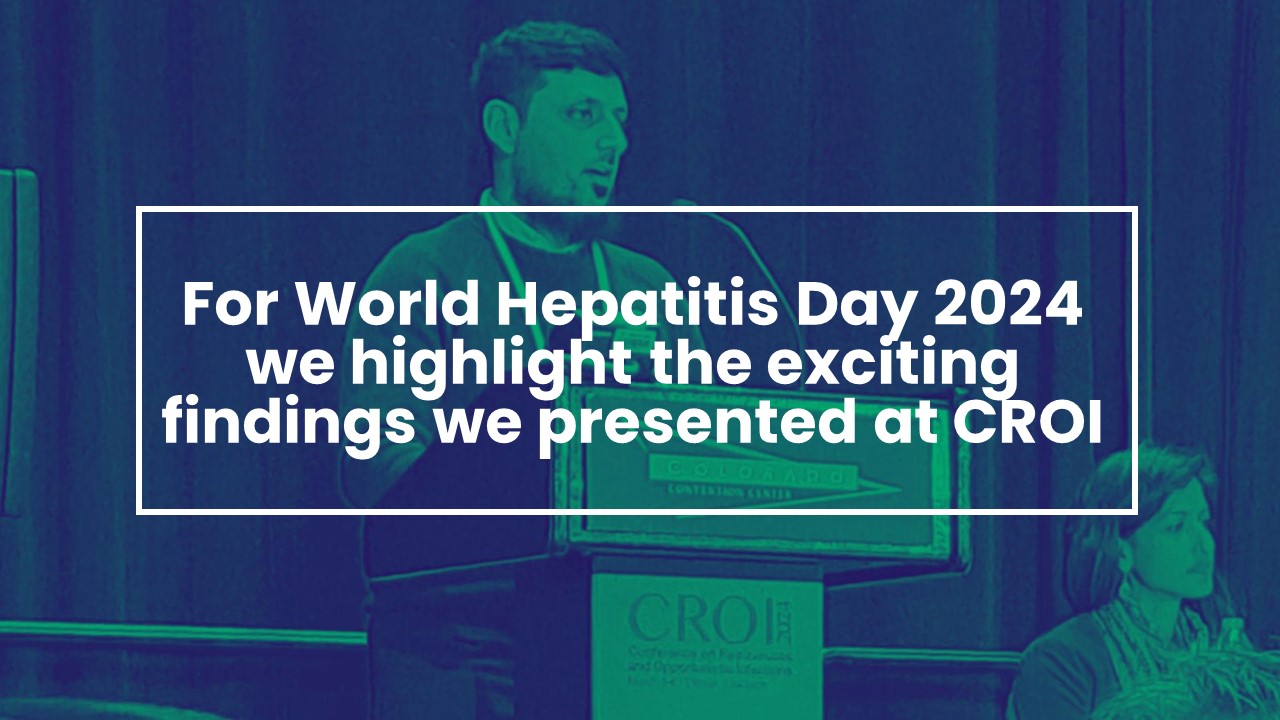"low- and middle-income countries" blog posts

World TB Day 2025: Preparing for clinical trials
24 March is World Tuberculosis Day, so the Centre of Excellence for Long-acting Therapeutics (CELT) want to update you where our ground-breaking long-acting tuberculosis (TB) prevention medication is up to.
Posted on: 24 March 2025

Unpacking STEM careers: Her Voice in Science
Some people may be aware that 11 February is the International Day of Women and Girls in Science. 2025 is a particularly special year as it’s the tenth anniversary of this United Nations (UN) observed day.
Posted on: 11 February 2025

Professor Catriona Waitt discusses the importance of access to research
Access to information is an important consideration in various communities, but in the pharmaceutical research community, this idea needs to extend further to equitable access to research. Though not the only cause, a firm base of equal access to research is necessary in the work to eradicate global medical inequity.
Posted on: 28 September 2024

A celebration of LONGEVITY’s research partners
In April for World Health Day, we highlighted the LONGEVITY partners and their commitment to equitable healthcare access. This will always be at the heart of all of LONGEVITY’s work, and we want to highlight the underpinning health research, specifically in medicine development. We thought it was a good time to spotlight the importance of LONGEVITY’s research partners as an example of how the Centre of Excellence for Long-acting Therapeutics (CELT) works collaboratively to reach our goals in global health.
Posted on: 22 August 2024

For World Hepatitis Day 2024 we highlight the exciting findings we presented at CROI
28 July is World Hepatitis Day. Hepatitis C virus is one of the three diseases the LONGEVITY project is working to be part of the eradication effort for, so we wanted to update you on recent findings in our long-acting therapeutics research.
Posted on: 28 July 2024

An update on our malaria work for World Malaria Day 2024
We’re using World Malaria Day to highlight our new part in the world’s ongoing efforts to eradicate malaria.
Posted on: 25 April 2024
.jpg)
A celebration of our partners for World Health Day 2024
Sunday 7 April was World Health Day where we recognise the work being done to address global needs in health.
Posted on: 8 April 2024

World Tuberculosis Day 2024: An update of our work at CROI
Every 24 March we commemorate World TB Day with the World Health Organisation. The theme for 2024 is ‘Yes! We can stop TB!’ and we wanted to update you on how we are playing our part in making that statement a reality.
Posted on: 22 March 2024
CELT celebrates Healthcare Science Week 2024 with Professor Saye Khoo
Healthcare Science Week is a week dedicated to celebrating the work of over fifty scientific specialisms and professional groups that make up the National Health Service’s diverse workforce.
Posted on: 15 March 2024

Dynamic partnerships for maximum impact: How our collaboration with Tandem Nano Ltd is fast-tracking our development programme
Maintaining adherence to medication is often a huge challenge to patients in low- and middle-income countries (LMICs). Reasons for poor adherence can be quite complex. They may run out of tablets and are unable to get a new supply, they may forget to take their medicine or they simply don’t like taking tablets daily due to the difficult side effects they can cause. Regardless of the reason for poor adherence, there is overwhelming evidence that supports the need for a different approach to healthcare within affected communities.
Posted on: 5 April 2023

Stopping TB in its tracks with long-acting injectables: A war of attrition
World TB Day 2023, themed 'Yes! We can end TB!', is set to inspire a renewed sense of hope in the fight against the TB epidemic. The campaign seeks to encourage leaders to take bold steps, increase funding, adopt innovative solutions, and act faster to curb the spread of the disease.
Posted on: 23 March 2023

Community engagement – shaping the long-acting technologies pipeline
The latest World Health Organisation (WHO) reports estimate 58 million people globally have chronic hepatitis C virus (HCV) infection, with about 1.5 million new infections occurring per year. 75% of these cases occur in low- and middle-income countries. It is estimated that oral drugs at the point of diagnosis provide a 98% cure rate if an entire oral regimen is completed. However, in LMICs, access to medication can be complex with issues around stigma and pill burden resulting in poor completion rates.
Posted on: 28 July 2022

Developing a single-injection cure for hepatitis C virus for low- and middle-income countries
Dr. David Lee Thomas is a professor of medicine at the Johns Hopkins University School of Medicine. He is trained in internal medicine and infectious diseases and cares for patients with chronic viral hepatitis. Dave leads the Hepatitis C programme for the Unitaid funded LONGEVITY project for CELT. From 2006-2022, Dr. Thomas served as the director of the Division of Infectious Diseases and the Stanhope Bayne-Jones Professor of Medicine. He remains a Professor of Medicine in the School of Medicine and of Epidemiology in the Bloomberg School of Public Health. He is a co-director of the Centre for AIDS Research Clinical Core. For world Hepatitis Day 2022, Dr Thomas shared his expertise on hepatitis C virus as a world-leading clinical researcher.
Posted on: 28 July 2022

Saving lives through long-acting injectable innovation
Professor Steve Rannard is Co-director of the Centre of Excellence for Long-acting Therapeutics. Steve leads a team of chemists in developing long-acting formulations for malaria prevention. For World Malaria Day, Steve and his group spent some time to explain how their innovative technology can revolutionise malaria prevention in low- and middle-income countries.
Posted on: 24 April 2022

Reducing the burden of TB in the world’s most in need communities with long-acting injectables
Ketho Angami is a member of the Global TB Community Advisory Board and Long-Acting Technologies Community Advisory Board. In 2016 he received the National Leadership AIDS Award in India, and also the Nagaland State Governor’s award in 2021. Ketho has been engaged in the field of community led advocacy for more than 15 years, working actively in the field of tuberculosis, HIV and viral hepatitis by holding governments accountable for preventable deaths from infectious diseases. He has been engaged with the grassroots population and generating community demands for quality of service on a human rights-based approach.
Posted on: 24 March 2022

Investing in TB prevention strategies with Long-Acting injectables
Susan Swindells is Professor of Internal Medicine in the Section of Infectious Diseases at the University of Nebraska Medical Center, USA. She is a contributing investigator on TB clinical development for the LONGEVITY project. A native of England, Dr. Swindells earned her medical degree from University College London in 1977, with postgraduate training in England and at the University of Washington in Seattle. A clinician and active researcher, Dr. Swindells has many years’ experience in HIV-related translational and clinical research, with a special interest in tuberculosis co-infection.
Posted on: 24 March 2022

Living with TB: My Experience
Monica was raised in a small town called Kohima in North East India. In 2015 she was diagnosed with TB for which she was treated for more than two years. Monica experienced a difficult treatment regimen which included daily injections for nine months and oral medication throughout the duration of her illness. Monica experienced many problems when living with TB including stigma and many difficult side-effects.
Posted on: 24 March 2022